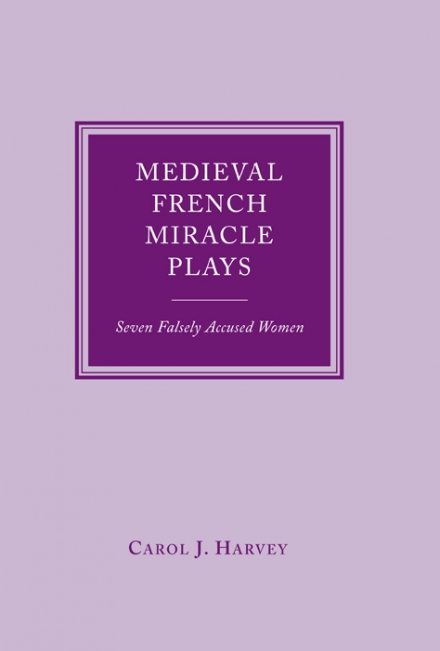Medieval French miracle plays
Seven falsely accused women
Carol J. Harvey
In the Middle Ages, religious theatre was a popular medium for both the edification and the entertainment of the public. This book centres on seven of the forty Miracles de Nostre Dame par personnages of the 14th-century Cangé Manuscript, produced annually for the Goldsmiths’ Guild of Paris. This is the first in-depth study of a subset performed between 1368 and 1379 about women unjustly accused of adultery or monstrous birth, or threatened with rape or incest. Surprisingly modern themes of female empowerment, self-mutilation and cross-dressing emerge as the women are forced into exile to escape death, but are eventually vindicated with the miraculous help of Our Lady. The book demonstrates that in addition to the plays’ religious significance and literary qualities, they engage with the goldsmiths’ spiritual and material concerns, reflect their urban culture, and promote their socio-political agenda during the war and turmoil of 14th century France. Based on the evidence of the plays, it proposes a re-assessment of the hypothesis that the manuscript was made for presentation to a royal patron.
Carol J. Harvey is professor emerita of French, U Winnipeg. She has published books and articles on medieval French poetry, romance and drama, and on the francophone literature of western Canada.
This is the latest volume in the Dublin Studies in Medieval and Renaissance Literature series (John Scattergood, series editor). Previous titles in this series include: Tony Corbett, The Laity, the Church and the Mystery Plays: a drama of belonging; Dinah Hazell, Poverty in Late Middle English Literature: the meene and the riche; Eiléan Ní Chuilleanáin and John Flood (eds), Heresy and orthodoxy in Early English literature, 1350–1680.
